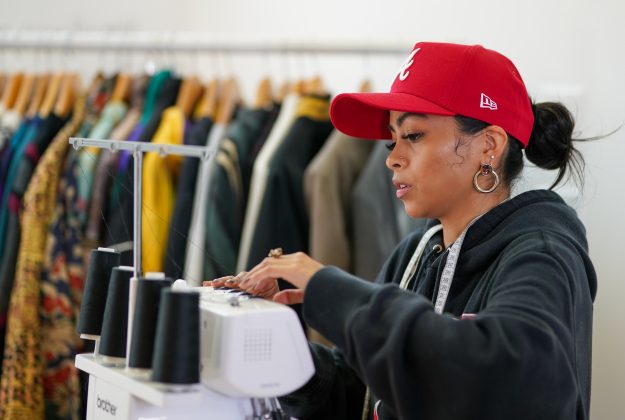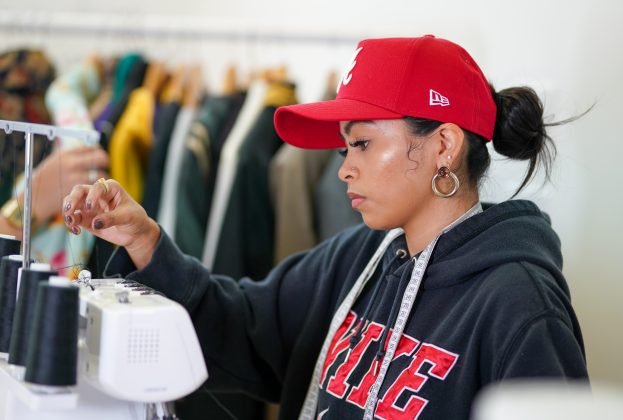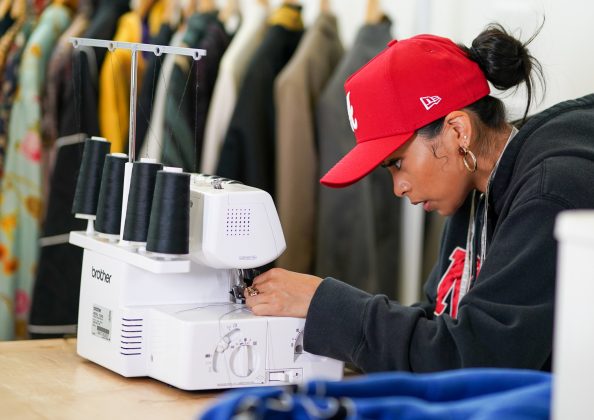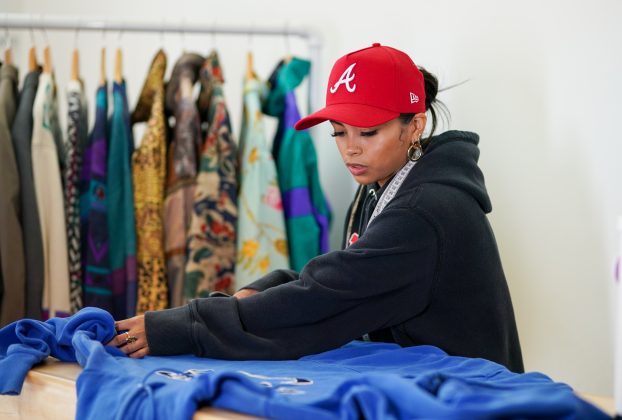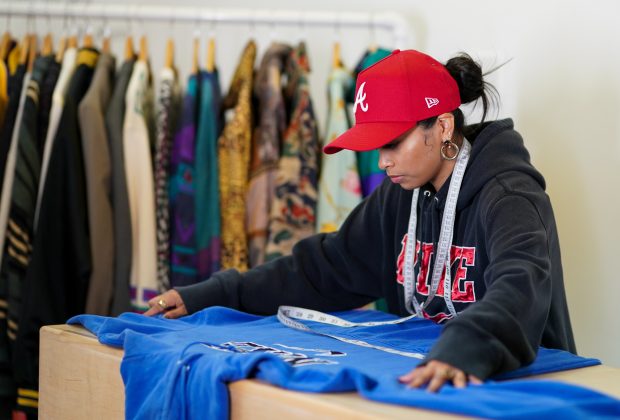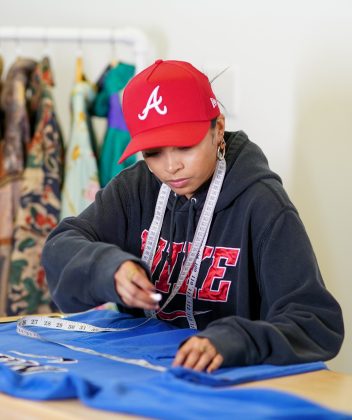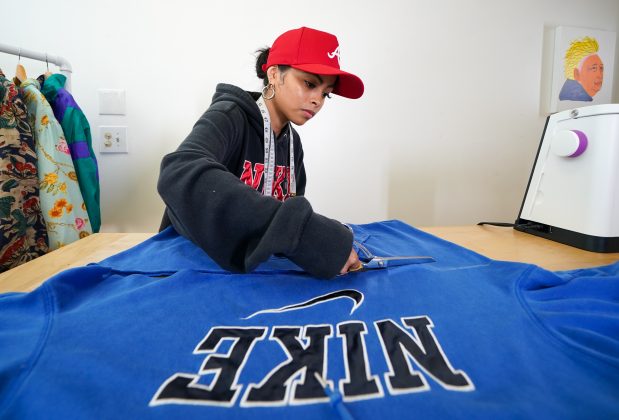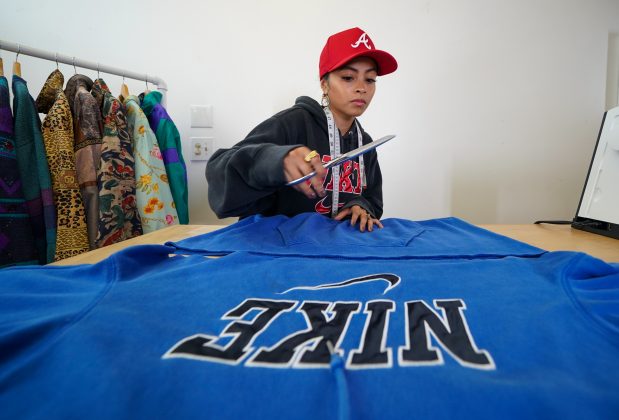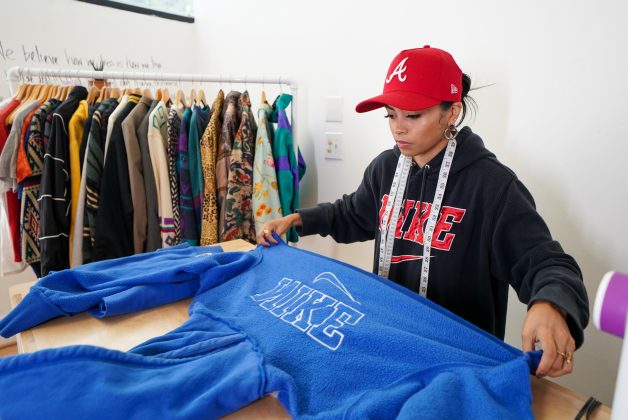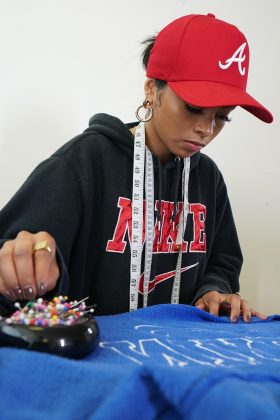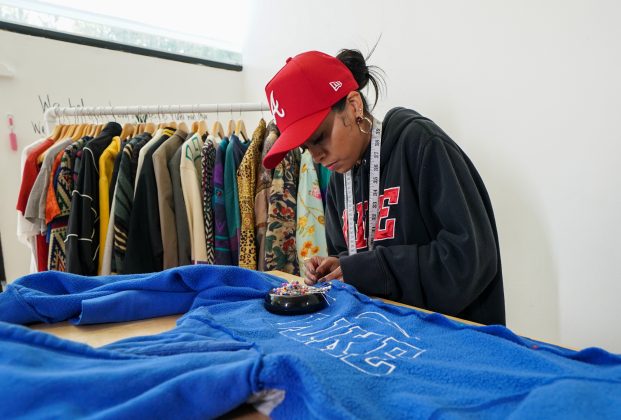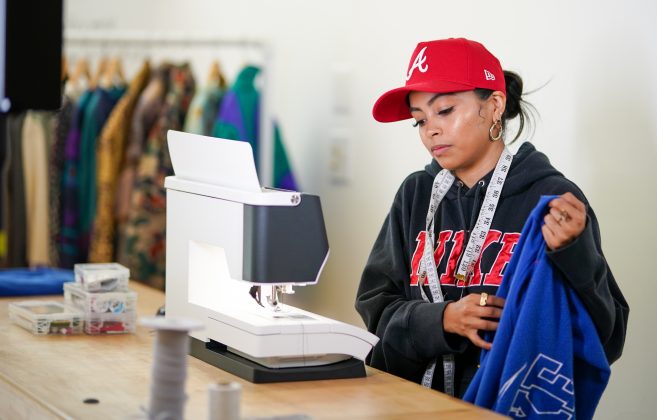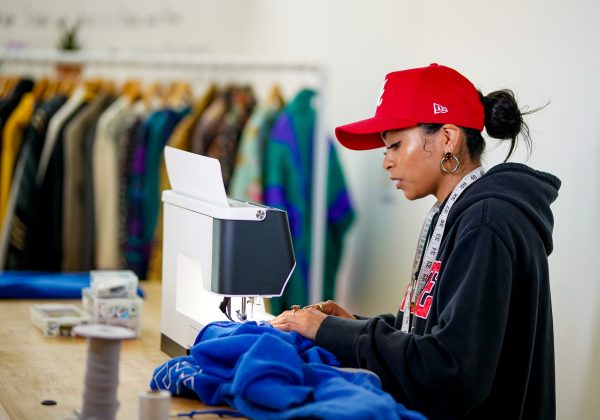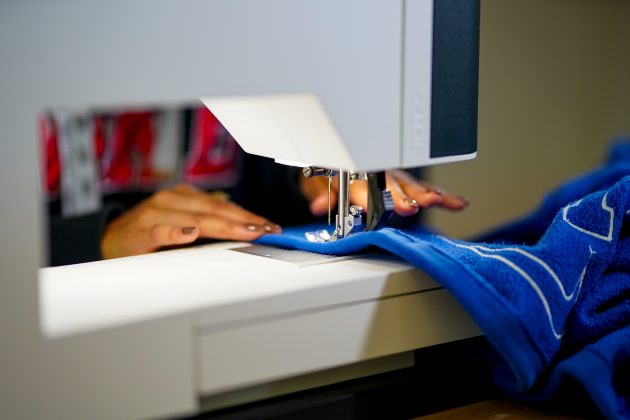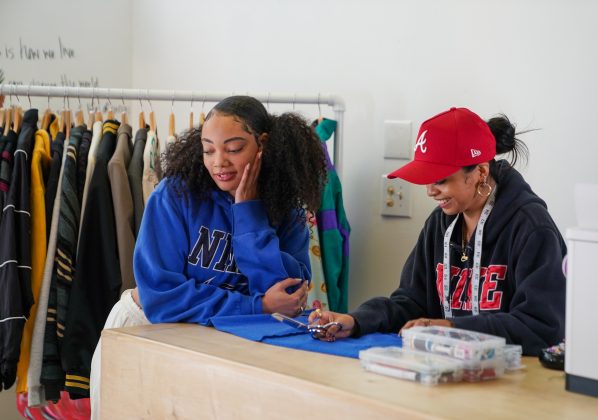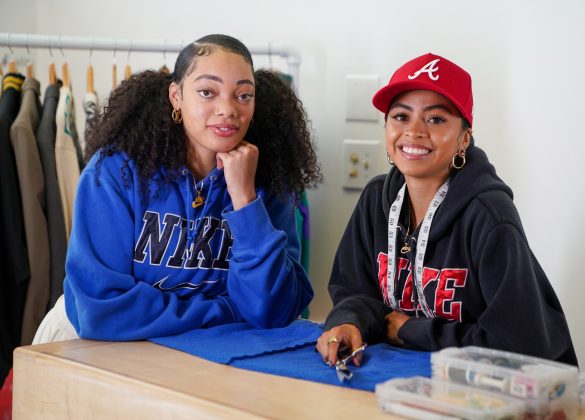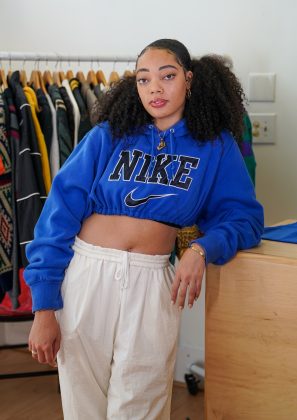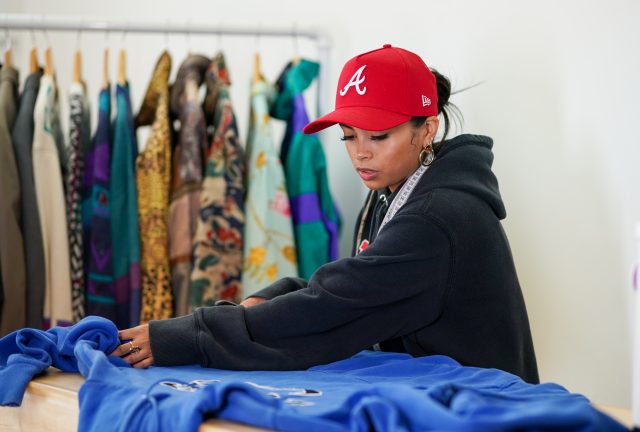
By Ameera Steward
The Birmingham Times
Leslie Gomez grew up in the thrift stores on Center Point Parkway in Birmingham, where her grandparents worked. Now the designer builds her own business through those same stores.
Through her online shop, Tryna B Studios (trynabstudios.com), Gomez hand-selects pieces, mostly men’s clothing, from various thrift stores and reworks them to fit women with a love for streetwear. That repurposing of clothing allows Gomez and others in the Birmingham-area fashion community to bring a not only a sense of style but a sense of sustainability to the city.
Sustainable fashion is a movement centered on fostering a shift toward fashion products that prioritize ecological integrity and social justice; the term refers to clothing that is designed, manufactured, distributed, and used in ways that are environmentally friendly and socially conscious.
Fast fashion, on the other hand, involves the manufacturing of inexpensive clothing produced rapidly by mass-market retailers in response to the latest trends, regardless of the impact on the environment or workers, in many instances.
Gomez, 23, is among the growing number of local business owners who know that what we buy and how we dispose of it affects the environment just as much as whether we decide to recycle or not.
“Sustainable fashion to me is just maintaining the cycle of the clothes, just being able to make anything from something. … It’s just reusing things that are already there, things that already exist,” she said. “Repurposing with a purpose—that was always my biggest statement.”
When Gomez was younger, “trips to the thrift store were more than just a trend.”
“It was more than just something cool to do, like a lot of kids now are just picking it up because they see it as something cool that everyone’s doing,” she said. “For me, at one point that was all that we could get. … Your parents could only afford to shop for clothes twice a year when school started. [The thrift store] was the one place I could go and possibly get a new shirt or some new pants.”
During that time, some people looked down on shopping at the thrift store and used to make fun of people who shopped there, she added: “People were afraid to admit that they got certain things at thrift stores back when I first started. Now it’s a flex, [or a way of showing off].”
Thrift store shopping has also become a popular business. In 2011, Gomez started making alterations to her clothes to fit her petite physique because “all the cool things I would find in thrift stores were really big for me.”
When social media became a platform, fashionistas had the chance to showcase their style. When Gomez’s followers saw her alterations, they wanted custom pieces. After getting so many questions about whether her clothes were for sale, she finally decided to focus on making a business of refurbishing clothes.
Eventually, Gomez would like to teach classes on ways to repurpose clothing and help young women interested in working with her “start their own sustainable clothing lines or learn how to sew for themselves so they can be sustainable with their choices.”
Part of expanding the sustainable fashion movement involves educating people about what’s happening with fashion, as it relates to environmental and working conditions in factories. Gomez said she sees her own family and parents in those factory workers.
“Being a child of immigrants, just the thought of it and … my family coming from a place like Mexico, … I could never see myself using those types of companies to mass produce my own products. It’s too close to home for me,” she said. “I feel like it’s like that for a lot of people of color because there are little kids and people of color everywhere around the world being used.”
She added that power is in the hands of the consumer when purchasing products made under those harsh, sometimes inhumane conditions. The moment consumers stop shopping with the big brands, those companies will go back to their marketing teams to see what they’re doing wrong, Gomez explained.
“[The brands and companies] have full marketing teams to figure out how to best sell to [consumers], so we must be something special,” she added.
In the meantime, Gomez is building on her relationships with her circle of supporters.
“I’ll do an [Instagram Live video] with different designers and touch on different questions they’ve been asking or issues they’ve been curious about,” she said. “I try my best to stay active and actually talk to them, … which is why I feel like they support me so much. … For me, it’s not treating them like a number [but] treating them like actual people.”
For more on Tryna B Studios, visit trynabstudios.com.
Click one of the links below to read more about Birmingham’s sustainable fashion scene.
Collin Balentine and Jordan Joiner: Helping the Environment
Glenda Norman: Re-Fashioning Scrap Into Jewelry
Lana Watkins: Creating a Dream Closet
Shaquala Courtland: Restoring Clothing…and Spirit
Samra Michael: Preventing Waste
Kristyn Edwards: Raising Awareness

